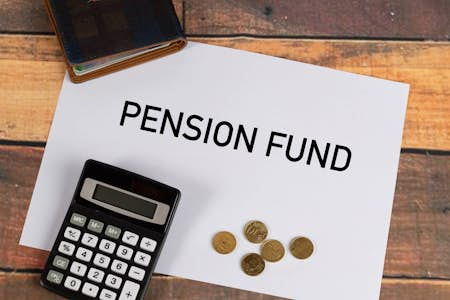In April 2015, the UK government introduced a raft of changes to the UK pension industry, described as "pension freedom". It is fair to say this was a significant overhaul of the UK industry and gave pension savers much greater control over their pension pots. We have seen a further change regarding investment strategies - the pension industry today is unrecognisable to that before the turn of the century.
Maximise your retirement fund with our panel of pension providers. Click on your chosen provider to get started!
Pension income options
Before we take a look at the subject of lump-sum payments, it is worth reminding ourselves what the UK government’s reforms mean in reality. There are now six options available when you retire:
- Retain your pension pot with no changes
- Purchase an annuity
- Flexible access drawdown
- Multiple lump-sum payments
- Cashing in your entire pension fund
- A mixture of the above
When we look back on the days when annuity purchases were the only way forward for pension income, the “pension freedom” changes are highly significant.
Keep an eye on your lifetime allowance
In 2006 the UK government brought in what is known as the “lifetime allowance” - with numerous adjustments since. This is basically the maximum accrued pension benefits allowed before you are hit with punitive taxes.
The allowance is currently £1,073,100 for the tax year 2020/21 and is frozen until 2026. It is important to note that the lifetime allowance will take both defined benefit and defined contribution pension schemes into account. However, your state pension will not be counted as part of your lifetime allowance.
Lifetime allowance and lump-sum payments
Under current pension regulations, you are entitled to a tax-free lump sum payment upon retirement equivalent to 25% of your pension assets. When considering the lifetime allowance, this equates to a maximum tax-free lump sum payment of £268,275. Any lump-sum payment above this level would attract tax at 55% (this is reduced to 25% for regular income payments above the lifetime allowance).
Your lifetime allowance is updated each time you withdraw benefits/crystallise assets from your pension asset pool. The moment that your pension income exceeds the lifetime allowance, the 55%/25% tax rate would apply to the excess. The introduction of the lifetime allowance to limit tax beneficial pension payments has created a degree of complexity. Therefore, you must take professional advice if your pension assets are valued close to the lifetime allowance.
Lump-sum payments where lifetime allowance is not an issue
The vast majority of defined benefit/defined contribution pension pots are unlikely to challenge the lifetime allowance limit. So, where do you stand with lump-sum payments upon retirement?
As we touched on above, you are entitled to a tax-free lump-sum payment of 25% of your pension assets upon retirement. If you choose to withdraw more than 25% of your pension assets as a lump-sum payment, the excess will be subject to tax. This is calculated by adding the excess income to your annual income, which is then taxed at your highest rate.
Utilising your tax-free allowance
In England, each person has a standard personal allowance of £12,500 per annum. This is the amount of income you can receive each year before you start to pay income tax. This figure differs in other parts of the UK, so it is essential to check your situation. How does this help your tax situation?
The full state pension is £175.20 per week (although in reality, you are unlikely to qualify for a full pension), which equates to £9,110 per year. This is not taxed at source and is included when considering your standard personal allowance. Therefore, if you receive the full state pension, you can earn an additional £3,390 per year without paying any income tax (assuming you have no other income). So when looking to maximise your tax-free income, you would be able to take an additional payment to utilise your tax-free allowance fully.
What are the triviality rules?
There are special triviality rules related to defined benefit schemes (not defined contribution pension plans) where an individual's pension benefits are worth no more than £30,000. In this scenario, you would be able to take receipt of all pension fund assets as a lump sum payment, but there are additional conditions:
- Scheme rules must specifically allow the use of the triviality rules
- All remaining benefits have to be taken at the same time
- After payment, the member has no rights remaining in the scheme
- There is sufficient lifetime allowance available
- There haven’t been any other triviality payments more than 12 months previous
On the surface, it can appear difficult to value your pension benefits within a defined benefit pension scheme. However, as a rule of thumb, your defined benefit pension assets are valued at 20 times your annual pension. If you qualify for the triviality rules, and your benefits are in payment, the one-off lump sum payment would be treated as income and taxed accordingly.
Where your benefits are not in payment, you would still be entitled to your 25% tax-free lump sum. The additional 75% of your fund would be added to the rest of your taxable income and taxed at the higher rate.
What is a small pot lump sum?
While there are various conditions, you may also wish to look at the small pot lump sum rules, which can be useful for relatively small pension plans. These rules relate to pension pots worth no more than £10,000. It is vital to take advice, but the general rules are as follows:
- You must be at least 55 years of age/or qualify for early retirement due to illness
- You can take up to 3 personal pension small pot lump sum payments
- There is no restriction on the number of occupational pension pots which can be taken as small pot lump sum payments
As with all aspects of pension management, you should take professional advice as the rules and regulations change regularly.
Make sure you know your entitlements
Under "pension freedom", there are numerous ways in which you can withdraw funds from your pension scheme. It is essential to be aware of the tax consequences and the fact that a lump-sum payment today will reduce your pension pot in the future. Aside from the triviality and small pot lump sum rules, there may well be genuine reasons why you wish to withdraw above and beyond your tax-free lump sum entitlement.
Unfortunately, with greater pension fund flexibility comes a greater degree of complexity and various rules/regulations. You can learn about forthcoming adjustments in our recent article looking at pension regulation changes in 2021. Ensure that you take advice to maximise your income and steer clear of any avoidable tax liabilities!







